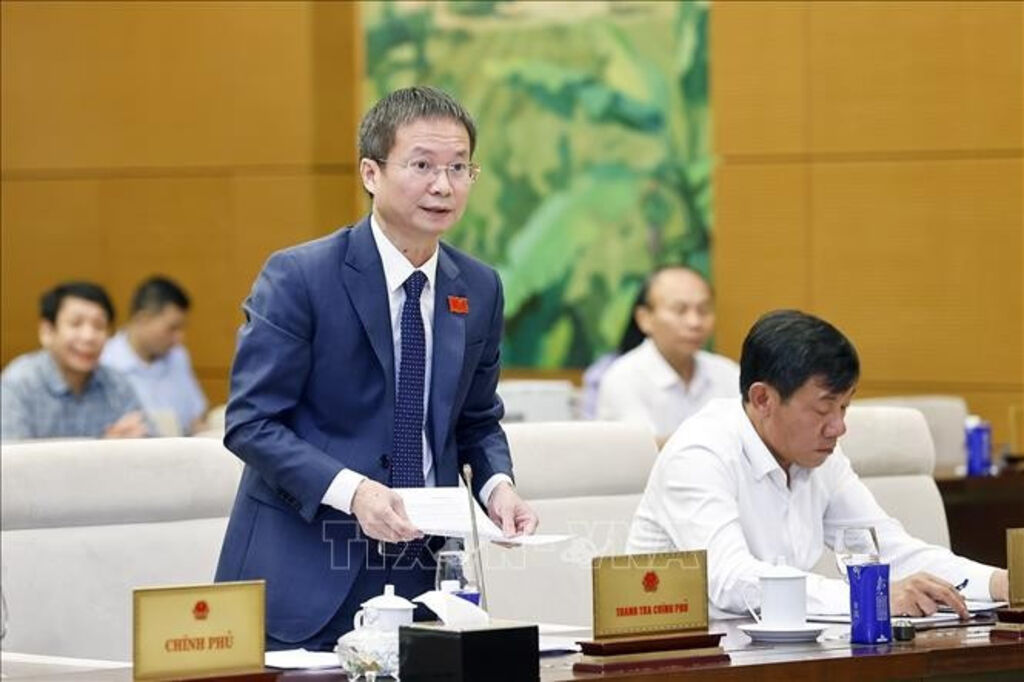 |
| Government Deputy Inspector General Le Tien Dat__Photo: VNA |
The Law on Inspection 2025 has been highlighted as one of the key legislative achievements celebrating the first Congress of the Party Organization of the Government for the 2025–2030 tenure.
According to Government Deputy Inspector General Le Tien Dat, in a short period from March to early August this year, the Government Inspectorate of Vietnam advised the Government to draft and submit the revised Law on Inspection to the National Assembly for approval, and helped the Government issue four decrees while promulgating three circulars to promptly institutionalize the Party’s guidelines and improve the legal framework governing the organization and operation of inspection agencies as well as other State management areas under the Government Inspectorate’s authority.
The Inspection Law 2025 is a comprehensive, large-scale piece of legislation interlinked with dozens of sectoral laws. The law revises 20 related laws, helping perfect the entire legal system on inspection, supervision, and oversight within the State apparatus. Notably, it reduces 45% of the legal provisions compared to the 2022 version by retaining high-quality existing regulations, amending inadequate ones, and adding new provisions to promptly translate the Party’s policies into law. It also cuts 40 percent of administrative procedures, while emphasizing decentralization and delegation of authority.
In addition to maintaining a two-tier inspection system, the new law clarifies the working relationship between the Government Inspectorate and ministries, sectors, and localities, as well as between provincial inspectorates and department-level units. It also refines the concept of “inspection,” removing the distinction between administrative and specialized inspections. The role of inspection agencies is defined as “reviewing, assessing, concluding, and recommending handling measures”, while the enforcement of violations will be carried out by competent bodies through other legal instruments.
In line with Resolution 57 of the Politburo, the law for the first time institutionalized online and remote inspection based on digital data, a pioneering step in Vietnam’s national digital transformation. This innovation enhances efficiency and transparency, shortens inspection time in certain cases, and reduces direct contact with inspected entities, thus helping prevent corruption and misconduct in inspection activities.
Following the instructions of Party General Secretary To Lam, who is also head of the Central Steering Committee for Prevention and Control of Corruption and Negative Phenomena, the Government Inspectorate is continuing work on amendments to the anti-corruption law and the revision of three other laws – the laws on citizen reception, on complaints, and on denunciations, to be submitted to the 15th National Assembly’s 10th session in October. Each new piece of legislation aims to enhance transparency, strengthen accountability, and ensure feasibility and effectiveness.
Additionally, the Government Inspectorate will continue to improve mechanisms and policies to ensure close, consistent coordination among central and local inspection bodies, while accelerating the application of digital technologies in data management and utilization to support legal development efforts.- (VNA/VLLF)









